Feature
How F1 ACADEMY and >= More than Equal are building a database to future-proof female driver development
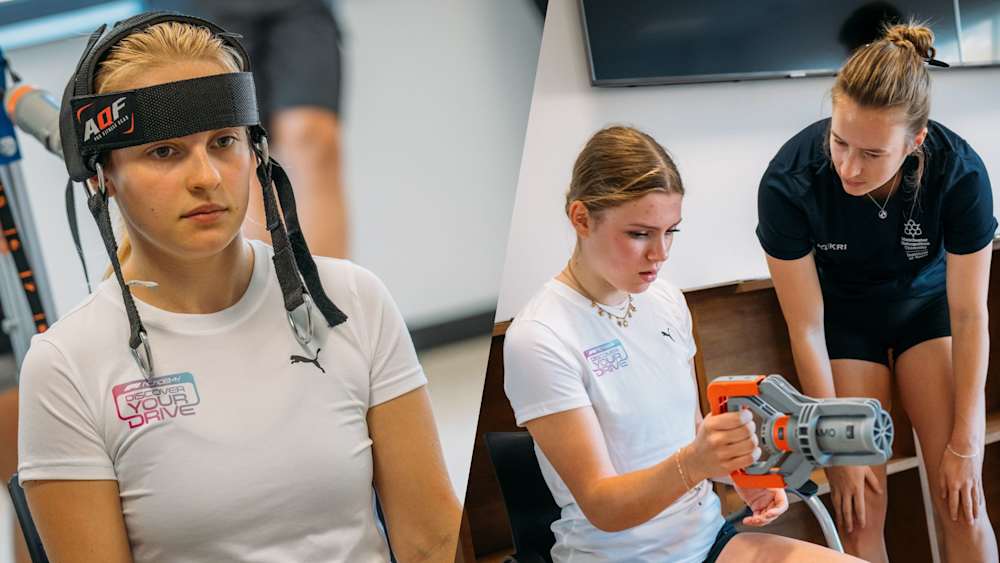
F1 ACADEMY and >= More than Equal are continuing to make waves in their innovative partnership, focusing on how tangible data can speed up female drivers’ development by identifying exactly what separates a good racer from a great one.
Working alongside Manchester Metropolitan University, they put this into practice at this season’s Rookie Test at the Circuito de Navarra from September 17-18, assessing both current and Rookie drivers across a range of physical and psychological factors.
WHY AND HOW DID THE RESEARCH HAPPEN?
As drivers progress from karting to the upper echelons of motorsport, a critical part of their development comes from understanding the physical and mental changes they undergo as they age and in turn, move up into more challenging machinery and environments.
Drivers and coaching teams alike will benefit massively from knowing the details of their neck strength, cognitive processing speeds and many other qualities, which in turn will boost the quality of racing drivers across various racing series.
The Rookie Test offered a unique opportunity for the series’ Official Driver Performance and Research Partner >= More than Equal to measure these and directly compare current drivers to those with less experience, which will help to inform personalised training programmes for all of the competitors.
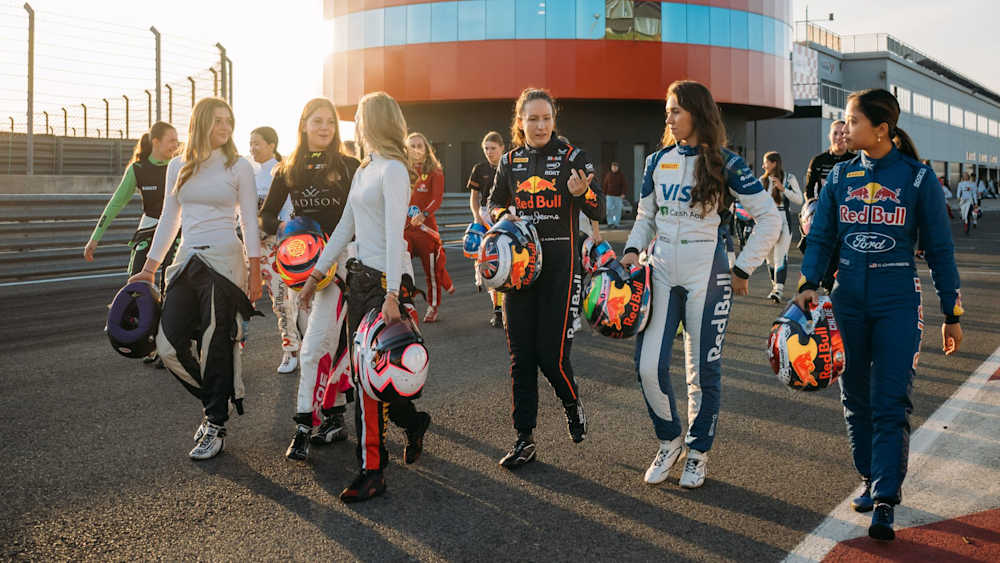
Creating the largest dataset of its kind on female drivers to date, 35 drivers took part in physical and cognitive assessments to build a 360° profile of their abilities over 40 variables.
These profiles will help researchers to identify the strongest predictors of racing performance, as well as empower drivers to appreciate their own data that can inform what they prioritise in training. While some might learn to improve their lower limb strength, others will need to work on retaining more information to help with their decision making.
READ MORE: F1 ACADEMY drives forward with full F1 team support in continued multi-year partnership
Dr Fran Longstaff, >= More than Equal’s Head of Research, explained: "In recent years there’s been a clear shift toward holistic performance enhancement in motorsport – with far greater attention devoted to the human performance factors that influence results, from conditioning and cognition to recovery and heat management.”
WHAT WERE THE INITIAL FINDINGS?
Neck strength is one of the biggest factors that differentiates single-seater drivers from other top-level athletes — they have to repeatedly sustain extreme G-forces that increase at every step of the motorsport ladder. The heavier and faster the car, the greater the forces the neck will have to manage.
Out of the current F1 ACADEMY drivers, those who performed in the top 10% of the tests demonstrated neck strength double that of the general female population, showing how effective their training has been so far.
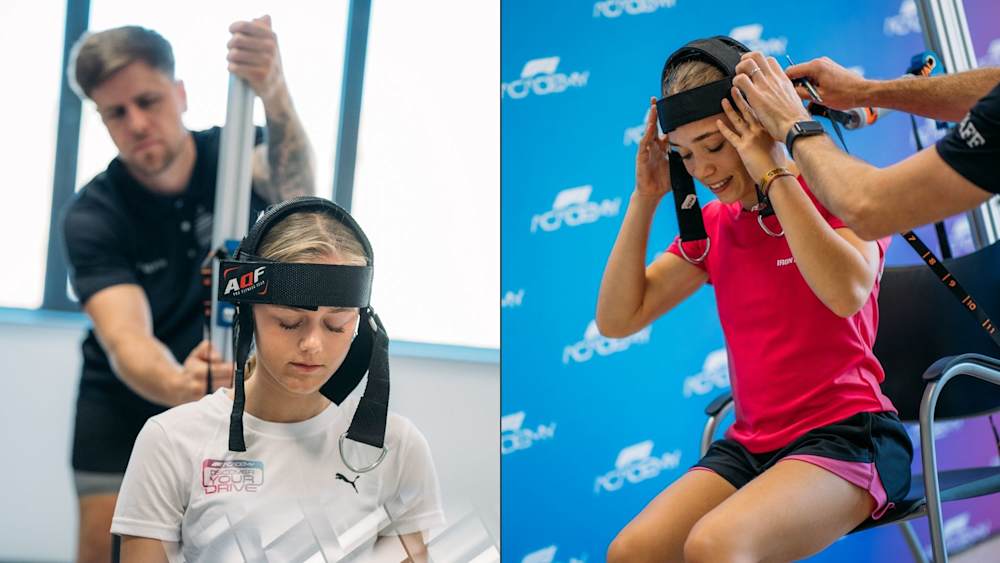
They also consistently outperformed the Rookies in this category, who all had varying levels of single-seater experience, confirming that conditioning the neck, as well as lower limbs, is paramount when it comes to progressing through different series.
As a result, >= More than Equal are using their partnership to adjust education and training programmes for drivers who enter F1 ACADEMY, allowing them to feel better prepared and hit the ground running from their very first on-track sessions. This in turn will see them maximise their two-year stint in the series and be in a stronger position to progress to more physically-demanding machinery.
READ MORE: HEAD-TO-HEAD: How Pin and Weug stack up in the battle for the 2025 title
Another area for Rookies to work on is selective attention and visual scanning, with current drivers exhibiting 33% higher performance in cognitive tests. Their overall processing capacity proved to be comparable to other professional athletes after 10 training sessions, illustrating that research-led programmes are incredibly effective.
However, one of the biggest findings was that brain performance decreased significantly immediately after they returned from an on-track session. This suggests that more focused reset routines are needed to help drivers recover mentally, which will in turn enable them to process feedback and data more effectively.
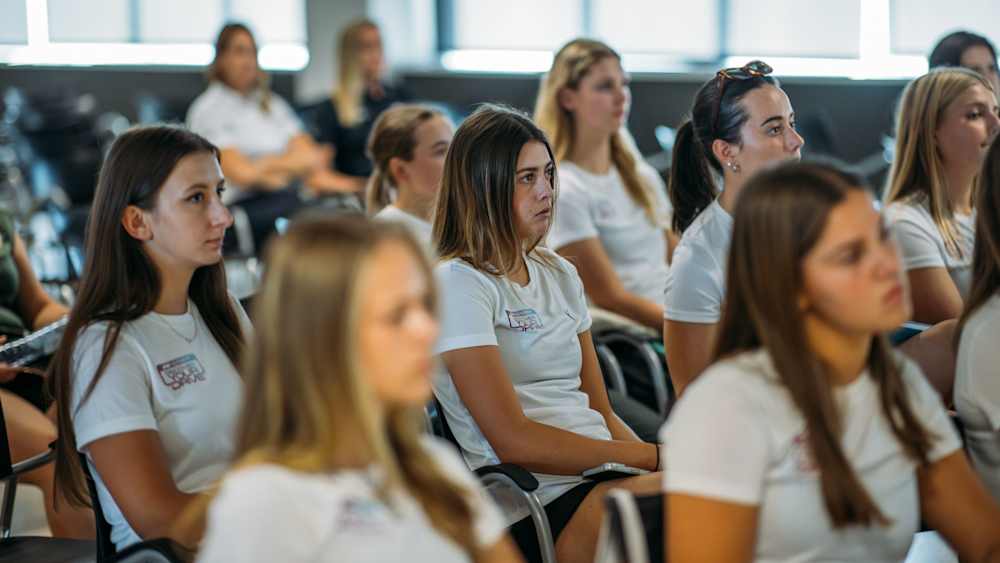
WHAT HAPPENS NEXT?
Conducting this research over just two days has already proven to be informative, but what can we do with it going forward?
Firstly, repeating the tests to collect more data will allow researchers to evaluate exactly which variables most strongly predict racing performance – from strength and power to endurance and cognitive recovery, the goal is to identify which areas coaches and drivers should focus on most.
Dr Longstaff added: “We’re helping grow that evidence base – especially for female drivers – by defining the physical and cognitive benchmarks at each competitive level, giving female drivers the insight to make better-informed decisions that can ultimately improve performance. Our partnership with F1 ACADEMY is crucial to making this happen."
Pre-season programmes can then be moulded to address the largest gaps between current and Rookie drivers, such as the difference in neck strength. This is where Manchester Metropolitan University comes in, as >= More than Equal will use their labs to develop assessment protocols, creating a potential opportunity for incoming drivers to measure their overall physical performance ahead of the season kicking off.
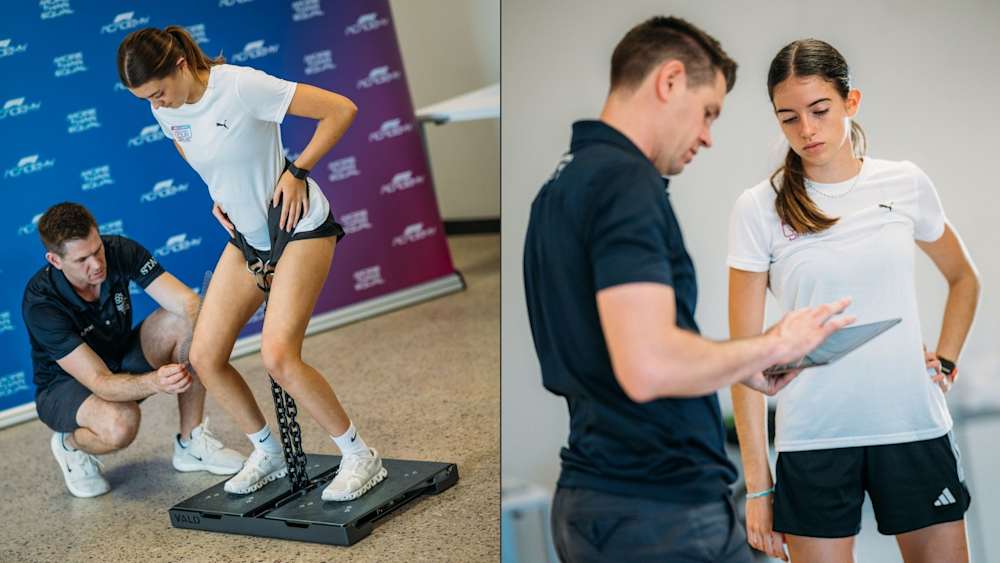
By focusing on factors that can be precisely measured, like aerobic capacity, upper body strength and shoulder function, researchers can reduce wasted effort and money in training programmes to streamline and accelerate driver development. For example, if a driver knows that their upper body is strong enough, they can maintain their conditioning in this area whilst dedicating more of their valuable time to improving their memory skills.
To determine this, the drivers themselves will also receive access to an individual dashboard, giving them the opportunity to review their results and collaborate with their team to act on their own insights. For >= More than Equal, being fast on track is just one element of being a successful racer and by understanding and working on their weaknesses, they believe that drivers are far more likely to see an improvement.
With the ambition of empowering female drivers to compete and win at the highest levels always at the forefront, this research is a step forward in understanding how F1 ACADEMY and >= More than Equal can give them the tools to thrive on the racetrack.